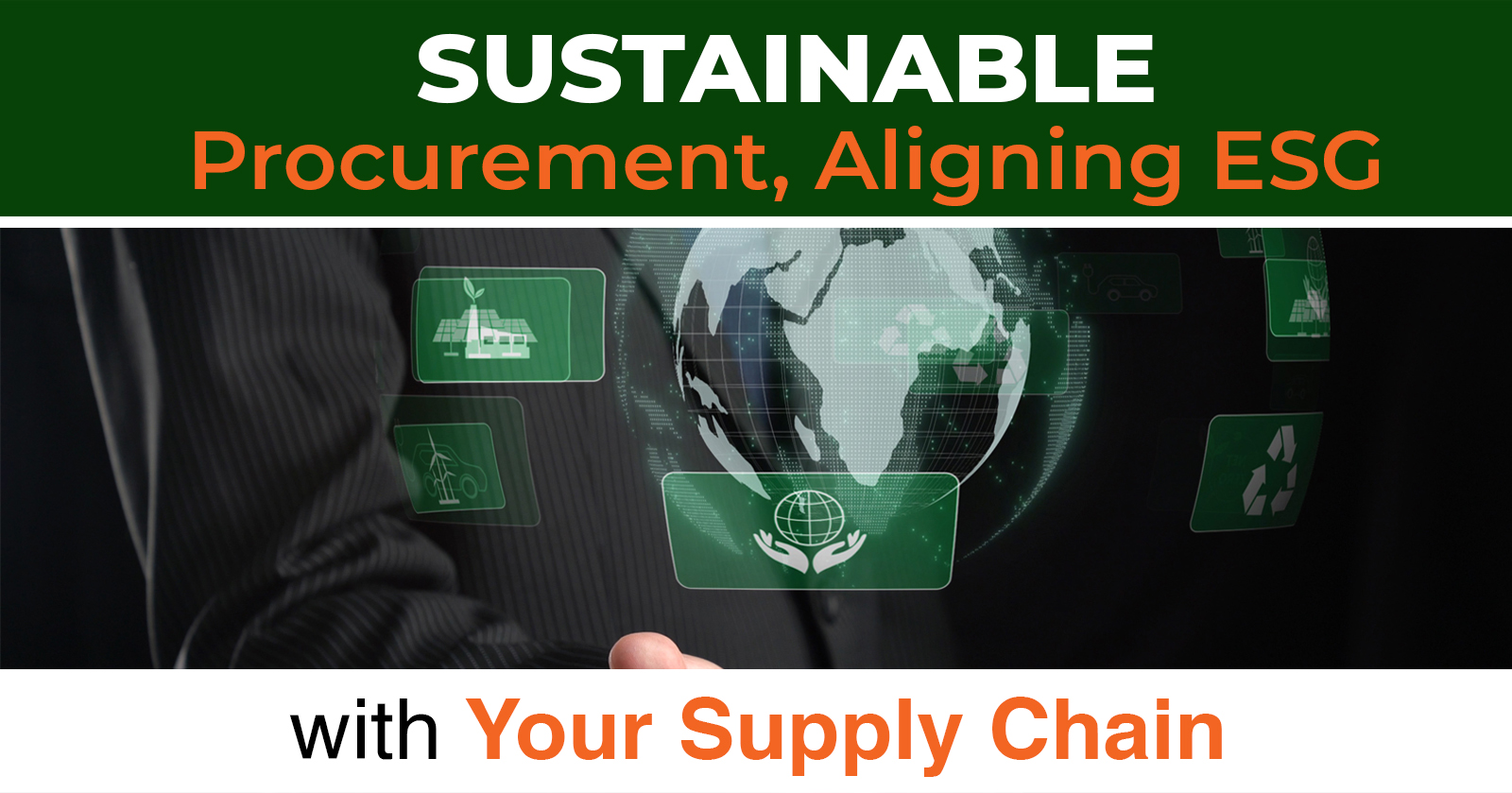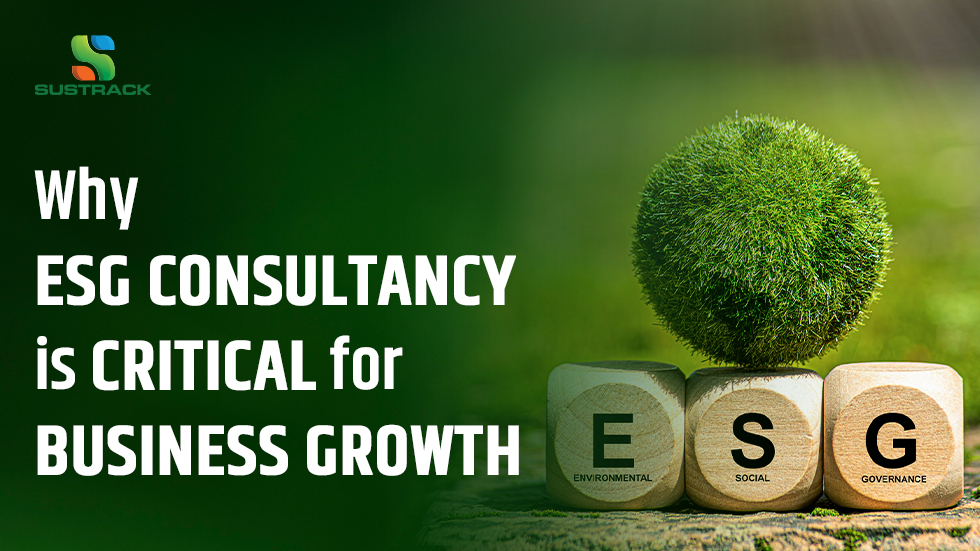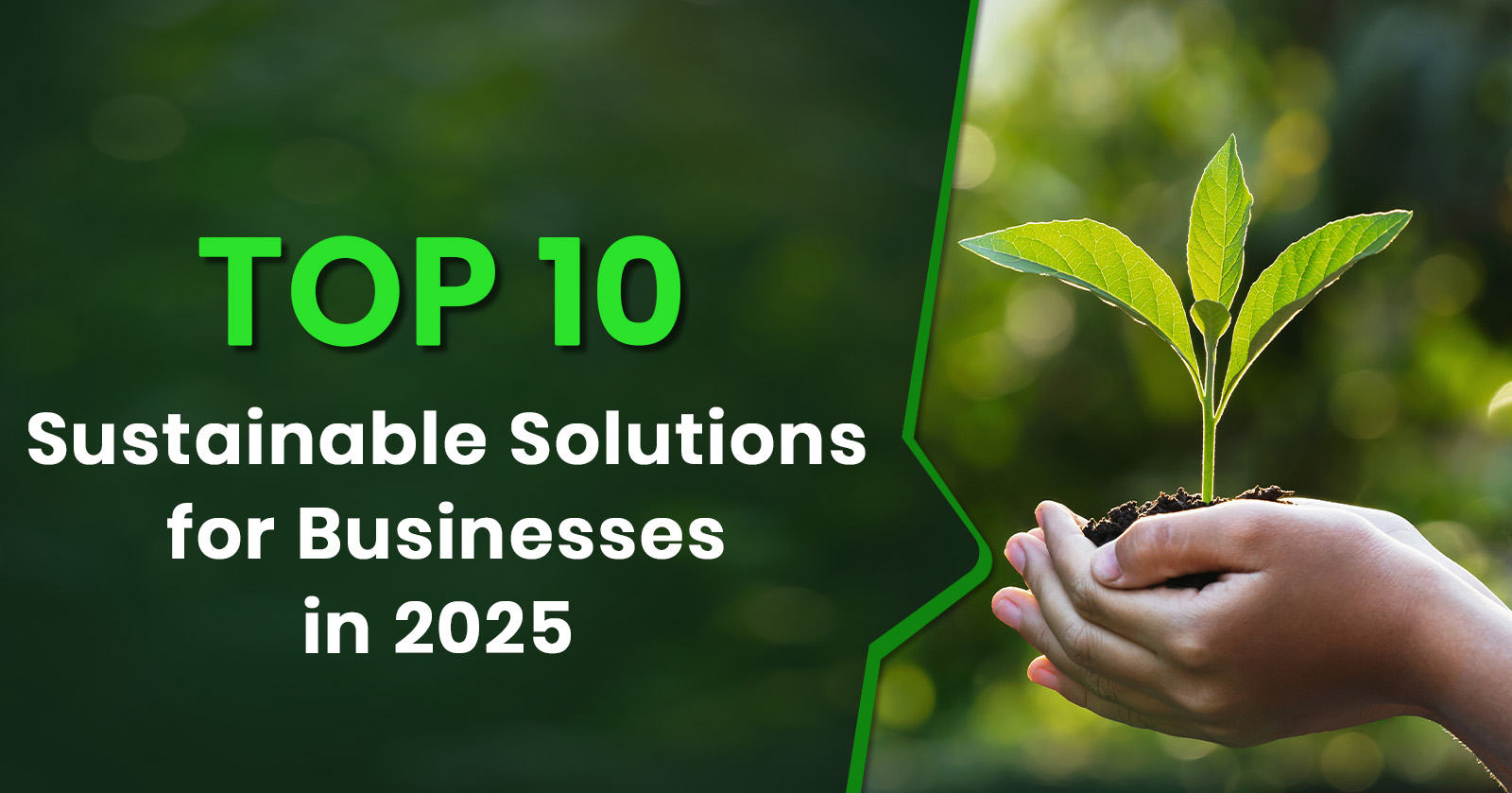Sustainable Procurement, Aligning ESG with Your Supply Chain

Buying goods and services is an essential part of every business, but today, it’s not just about price and quality. Companies are expected to focus on sustainable procurement, ensuring that what they buy supports the environment, fair labor, and ethical procurement standards.
Through responsible sourcing and proper vendor assessment, businesses can lower supply chain risks and effectively address ESG supply chain issues such as carbon emissions, waste, and unethical labor practices.
This blog explains. explain what sustainable procurement means, how to improve vendor assessment, handle ESG risks, and how Sustrack’s end-to-end support can help make your supply chain more responsible.
What Is Sustainable Procurement?
Sustainable procurement is the process of buying goods and services in a way that reduces harmful impacts to the environment and society, while still considering cost and quality.
It also checks the full supply chain to make sure all purchases support responsible and sustainable business.
Climate change is causing problems like loss of biodiversity, food and water shortages, and more natural disasters. To deal with this, some companies are working to lower their greenhouse gas (GHG) emissions and reduce waste in their supply chains.
Businesses are also expected to follow sustainable practices and share their progress through sustainability reports.
How to Audit and Improve Procurement Strategies?
Regularly auditing and improving your procurement process is important to stay efficient and follow the rules. Strong ESG supply chain practices depend on responsible sourcing, proper vendor assessment, and ethical procurement at every step.
Audit Procurement Strategies
Set Audit Objectives: Decide in advance what you want to check in the procurement process and which parts to focus on.
Collect Procurement: Collect important documents like purchase orders, invoices, contracts, supplier details, and reports on how much money was spent to understand how things are working.
Check Contract Compliance: Make sure contracts are being followed correctly and suppliers are meeting their promises.
Review Supplier Performance: Review supplier performance based on quality, delivery, and cost to find areas for improvement.
Spot Risks and Issues: Look out for problems like spending without approval, not following rules, or fraud.
Prepare the Audit Report: Clearly explain what was found during the audit, point out the problem areas, and share suggestions for fixing and improving the process.
Take Action and Follow Up: Resolve the issues and keep tracking progress to ensure that they are working as planned.
Improve Procurement Strategies
Understand Your Current Situation: Check how much you’ve spent and understand the market for each category. This shows where you can save money and avoid risks.
Engage with Stakeholders: Discuss with management, suppliers, finance, and other members. Engaging stakeholders helps find risks and opportunities you might miss.
Align Sustainable Procurement With Company Goals
Make sure your procurement strategy meets the overall business goals, like vision, budgets, and future plans.
Use the Right Tools: Manual work takes time and can lead to mistakes. Using software helps you track spending, find opportunities, and work faster.
Set Clear Policies: Set new rules and processes that help you make an effective, sustainable procurement strategy. Share the benefits with everyone and change what doesn’t work.
Set Priorities: Start with the most important spending areas. Use your data to find where you can make the biggest impact. Work with stakeholders to set realistic goals and plans.
Measures Success: Track how well suppliers and your procurement team perform using key indicators. This keeps everyone accountable and helps you improve continuously.
ESG Consultancy in Supply Chain Reform
ESG experts work with businesses to make sure their supply chains follow sustainable and fair practices, while reducing risks and improving overall results.
ESG consultants support businesses by creating ESG strategies, identifying and managing risks, and applying sustainable practices across the entire supply chain.
How ESG Consultancies Help Improve Supply Chains
Make ESG Strategies: ESG consultants help businesses to make effective plans that fit organisational goals and solve supply chain problems.
Identify Risk: They carefully check for environmental, social, and governance risks in the supply chain and find areas that need improvement.
Apply Sustainable Practices: ESG consultants help businesses apply sustainable practices in their supply chains, like reducing carbon emissions and supporting fair labor.
Make Transparency They help create strong reporting systems to track and share ESG progress, making the process more clear and accountable.
Involve Stakeholders: ESG consultants help businesses connect with suppliers, customers, and others to work together and build more sustainable supply chains.
Familiar with Regulation: They stay updated on ESG rules and help businesses follow the required standards.
Making Supply Chains Stronger: By following ESG principles, businesses can build supply chains that handle problems and changes easily.
Sustrack’s End-to-End Procurement ESG Support
Sustainable procurement means buying responsibly to protect the environment and support ethical practices. Responsible sourcing is important to building a supply chain that supports both ethical procurement and long-term sustainability.
Sustrack offers full support to help your business adopt responsible sourcing and strong ethical procurement.
We guide you in creating and improving your ESG strategy for a better, more transparent supply chain. Take the first step towards ethical procurement, connect with Sustrack!



